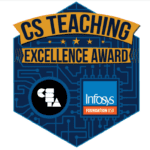
View all CS teachers recognized by CSTA and Infosys Foundation USA with a CS Teaching Excellence Award.
National Winners
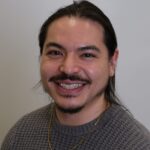
Eric Scattaretico (He/Him) is the K-5 Computer Science Teacher, IT Administrator, and Digital Media Specialist at PS 100 Isaac Clason in the Bronx. Throughout his eleven-year career in NYC DOE schools across the Bronx, Eric has dedicated himself to ensuring that underprivileged, marginalized students gain equitable access to high-quality computer science and technology education.
His career spans multiple Bronx schools, including PS 178 Magnet School of Multimedia Arts & Design, where he served as EdTech Model Teacher, Science Cluster Teacher, Head of Mathematics Department, and Special Education Teacher in ICT and 12:1:1 settings. He also taught at MS 593 South Bronx International Middle School near Yankee Stadium, consistently advocating for technology resources in communities where digital divides are most pronounced.
At PS 100, Eric implements culturally responsive teaching while managing over $400K in technology grants to create opportunities for students from diverse backgrounds. He integrates computer science with core subjects through projects using Minecraft Education, coding, and digital media creation, empowering historically underrepresented students in technology fields.
As an educational technology advocate, Eric holds numerous certifications as a Minecraft Educator, Google Educator, Adobe National Innovator, and Harvard MQI Coach. His passion for breaking down barriers to technology access drives his professional development, leadership, and conference presentations.
Eric’s commitment to equity is evidenced by his students’ achievements: in 2024, his team won both the Bronx championship and the citywide NYC Minecraft Education Challenge. In 2025, his students again claimed the Bronx championship, proving that when given proper resources and instruction, all students can excel in computer science.
Connect:
Twitter/X: @ScattTeaches
Instagram: @ScattTeaches
LinkedIn: ScattareticoTeach

Javier Aguilar (he/him), is in his twelfth year of working at East Fort Worth Montessori Academy as a bilingual technology applications/computer science teacher and robotics coach for PreK to 5th Grade students. He holds an Associate of Applied Science degree in Computer Drafting from TSTC, a Bachelor’s in Applied Technologies in Workforce Leadership and Training from UT at Brownsville and a Masters of Education in Educational Technology from UTRGV.
Javier is currently a communications lead of the Dallas/Fort Worth Computer Science Association chapter @dfwcsta CSTA. He actively promotes equity and innovation in education, particularly within the realm of computer science for elementary school students.
Javier is a proud ambassador from Microbit_edu, Scratch Foundation, Quizizz, Minecraft Education, Google CSFirst, WeteachCS(University of Texas), CodeMonkey, Bitsbox, PlayOsmo, Quizlet, CodeMonkey, Amazon Future Engineer and LEGO Master Educator. Moreover, he is an active #EdcampEfwma organizer.
Javier dedicates himself to empowering students from diverse backgrounds, especially girls, to providing learning opportunities to ALL of our students for the future at EFWMA. He holds Google Certified Educator Level 1 & 2 certifications. He is an active lead of computer clubs and home visits after school. Our school was recognized by Google CSFirst and participated in a promotional video.
In his free time, Javier loves to read, go to the movies, run, swim and spend time with his family and pets.
Twitter : @javierfaguilar
Linkedin : https://www.linkedin.com/in/jfaguilar

J.C. Burnett-Gordon (he/him) is a nationally awarded STEAM and Computer Science educator, arts integration specialist, and visionary leader in K–12 education. Based in Nashville, TN, he currently serves as the STEAM & Computer Science Educator at Cumberland Elementary STEM Magnet School, a Title I campus that had not had a STEAM teacher in three years before his arrival. There, he brings classrooms to life through the Disney Imagineering Framework, infusing creativity, innovation, and wonder into every lesson.
With over 12 years of experience as a dance educator and certifications in K–12 Computer Science, Dance Education, and STEAM Integration, J.C. reimagines learning by blending movement, storytelling, and tech-based exploration. Signature projects like “Code the Gingerbread Adventure,” “Rock Your Story,” and “Hidden Figures: Code the Cosmos” have transformed student engagement, giving underrepresented students—BIPOC, LGBTQ+, students with disabilities, and multilingual learners—a seat at the innovation table. His work consistently centers equity, representation, and joyful learning.
Beyond the classroom, J.C. mentors educators nationwide through leadership roles with the National Dance Education Organization, the Tennessee Arts Academy, and the Connected Arts Networks (CAN). He is also the founder of the Black Dance Educators Organization (BDEO) Affinity Group and CEO of the Dare 2 Dream Foundation, a nonprofit that bridges arts, education, and mental health.
JC is a proud member of Delta Phi Delta Dance Fraternity, Inc. and The Academia Society,Inc.
As a 2025 CSTA/Infosys Foundation USA CS Teaching Excellence Award Winner, J.C. continues to model what’s possible when passion, purpose, and pedagogy collide. He believes every student should be empowered to code their future, choreograph their learning, and lead with imagination.
Mantra: Dream it. Design it. Do it.
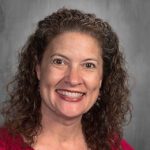
Michelle Burke is a dedicated educator with 25 years of experience in the Lake Havasu Unified School District in Arizona. Michelle began her career teaching middle school computers and high school business before earning her master’s degree in educational technology, which led her to serve as the District Technology Specialist. Currently, she teaches Software & App Design at Lake Havasu High School (LHHS) where she has spent the past seven years encouraging students to find their passion for computer science.
Michelle empowers her class to navigate coding challenges and apply problem-solving skills. Her students build resilience and perseverance. All seniors earned at least one industry certification, with several earning multiple certificates. Many former students are currently attending universities, pursuing careers in CS and cybersecurity.
As an advisor for Future Business Leaders of America (FBLA), Michelle has guided students to be actively involved and to compete and excel in competitions. Students have qualified at the national level in Computer Game and Simulation Programming, Coding and Programming, and Website Development. She is also an advisor of the high school’s travel club and takes students overseas on trips of a lifetime.
Michelle is an LHHS Department Chair. She contributes to the development of statewide curriculum on committees such as Math and CTE Integration, CS Technical Skills Assessment and AZ CS Scope and Sequence.
Michelle has been recognized for her contributions to education, receiving several honors. These include, the Microsoft Innovative Award, AZ State Tech Teacher of the Year, CodeHS Certified Educator, LHHS Teacher of the Year and LHHS Golden Apple Award.
When not studying code, Michelle is an avid hiker, exploring trails around the world. She is grateful for the support and resources provided by CSTA and CodeHS, which have played an integral role in her growth as a computer science facilitator.
She/Her/Hers
@mravnikar
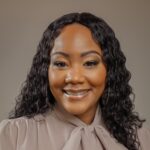
Patrice Wade (she or her) is a nationally recognized Technology Educator and Director of Technology at Guilford Preparatory Academy, a Title 1 public charter school in Greensboro, North Carolina. At the heart of her work is a belief that every child deserves to be seen, taught, and uplifted. Her students are not only learning technology. They are discovering how to use it to imagine, create, and lead in a world that is constantly evolving.
Before entering the classroom, Patrice served in executive roles at Fortune 500 companies. She now applies that expertise in an educational setting where innovation is real and relationships are sacred. Patrice teaches her students that learning begins with trust. No student will grow without knowing they matter. Patrice shows them they do.
She is an Amazon Future Engineer Teacher Ambassador, Common Sense Ambassador, Everfi Champion, Apple Certified Educator, Google Certified Educator, and proud North Carolina Teaching Fellow. She was named a 2025 North Carolina Department of Natural and Cultural Resources Learning Happens Here Teacher Ambassador and a 2025 to 2026 EdSurge Voices of Change Writing Fellow. She also facilitates Code.org’s Computer Science Discoveries program, where she trains educators across North Carolina. Patrice is currently pursuing her Master of Arts in Teaching at North Carolina Agricultural and Technical State University. She recently spent a summer working with NASA professionals, engaging with astronauts and industry experts while exploring the connection between education, engineering, and flight innovation.
Patrice celebrates the entire Guilford Preparatory Academy community, from the Board of Directors to the teachers, staff, PTA, and families, whose dedication, unity, and unwavering belief in students help shape a culture rooted in care, excellence, and purpose. The school is also home to championship-winning athletes and powerful community partnerships that reflect its excellence both in and beyond the classroom.
Patrice has taught a wide range of STEM subjects including computer science, coding, robotics, virtual reality, drones, esports, digital technology, typing, and hands-on engineering experiences using LEGO. Her instruction reflects both foundational skills and future-focused tools that prepare students to thrive in a rapidly evolving world.
Her students are her why. Her classroom is their launchpad. Her mission is to leave every child better than she found them.
Twitter or X: @TriceWade

Sangmin Pak (she/her) is a computer science and Earth Science teacher at Richmond Hill High School in Queens, NYC. A first-generation immigrant, Sangmin is passionate about making STEM education accessible to all students, especially those who come from immigrant and underrepresented backgrounds, just like her. Since beginning her teaching career in 2015, she has brought this commitment to life through her work in both special education and STEM classrooms.
Sangmin began teaching introductory computer science in 2018 and now serves as Director of the Software Engineering Academy at her school. As part of a collaborative effort, she helped the program earn Career and Technical Education (CTE) approval from the New York State Education Department, creating new opportunities for students to graduate with industry-recognized credentials and hands-on, real-world experience.
From 2022 to 2024, she participated in the NASA Climate Change Research Initiative (CCRI) internship, a milestone that allowed her to bring authentic, interdisciplinary STEM learning to her school. Because of the internship, she was able to leverage her NASA connections to organize the school’s first-ever Solar Eclipse Viewing event in April 2024 and a live NASA In-Flight Educational Downlink in March 2025, giving students direct access to astronauts aboard the International Space Station.
Sangmin’s efforts have earned national and local recognition, including the 2022 Amazon Future Engineer (AFE) Teacher of the Year Award and the Queens South High School Award for Service to the School Community in 2023. She was selected as an AFE Teacher Ambassador in 2024 and is currently part of a two-year fellowship focused on advancing computer science equity.
Through her work, Sangmin strives to empower students with the confidence, skills, and opportunities to see themselves in STEM fields, and to imagine a future they might not have thought possible.
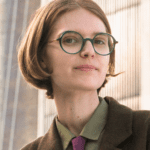
Tess Ramsey (they/them) is an artist and educator based in New York City. They are a champion of project-based learning and interdisciplinary collaboration with experience building and managing multiple makerspace programs.
Currently, they teach Creative and Computational Thinking classes to students in grades 5-8 at the Speyer Legacy School, a K-8 specializing in Gifted Education. In their years of teaching, they have worked with students across all grade bands, igniting passion for technology through the lens of art and self-expression. Recently, they established their school’s best practices around AI use and developed lessons that prepare their students to use it creatively and ethically.
Tess is a 2024-25 CSTA Equity Fellow committed to providing access to technology education and fostering a sense of belonging for all students in these spaces. In addition to teaching technical skills of design, engineering and computer science, they help students develop a “maker mindset” by celebrating creative agency, collaboration, and problem solving.
Before becoming a teacher, Tess received a BFA in Sculpture from the Tyler School of Art, focusing on promoting gender equality through performance art, interactive installations, and community workshops—a mission they continue as their school’s Queer & Ally affinity group facilitator.
In addition to teaching, they love to knit and search for rare vintage virtual pets to add to their ever growing collection.

Tiffany N. Jones (she/her) is a passionate and innovative computer science and cybersecurity educator at Global Impact Academy in Fairburn, Georgia. A native of Atlanta, Tiffany brings a systems-thinking mindset and deep industry experience to K–12 education, with a commitment to expanding equitable access to high-quality STEM learning for all students.
Tiffany holds degrees in Biological and Agricultural Systems Engineering from Florida A&M University, Systems Engineering from Penn State, Culinary Arts from The Art Institute of Atlanta, and Education from Savannah State University. She is currently completing a graduate certificate in cybersecurity at the University of Arkansas at Little Rock as a National Cybersecurity Teaching Academy (NCTA) scholarship recipient. Certified in Computer Science, Middle Grades Mathematics, and Gifted Education, she draws on her engineering and food manufacturing background to bridge classroom instruction with workforce and industry needs.
Now in her fourth year in K–12 education, Tiffany serves as the Pathway Lead for the High School Computer Science/IT Pathway in Fulton County Schools. In this role, she provides leadership and support for computer science and IT educators across the district, ensuring that curriculum and instruction align with industry standards and best practices. At Global Impact Academy, she leads the Computer Science and IT Pathway, where she has designed and implemented an engaging curriculum grounded in national standards, project-based learning, and real-world applications. Her students consistently excel in national competitions such as Amazon’s Your Voice is Power and eCybermission with several earning top recognition.
For the past four years, Tiffany has been a Level 2 participant in the U.S. Army Educational Outreach Program (AEOP) Research Experiences for STEM Teachers and Educators (RESET) program, spending her summers conducting applied research alongside Army scientists and engineers. Her projects have included co-developing a high school curriculum on chip and circuit design, and exploring cybersecurity concepts such as operational technology, anomaly detection, and digital twins. This summer, she will conduct research at the Information Technology Research Lab at the U.S. Army Engineer Research and Development Center (ERDC) in Vicksburg, Mississippi.
Tiffany is also a national leader in STEM education. She serves on the Computer Science Teachers Association (CSTA) K–12 Standards Writing Team, is a member of the Microsoft Visual Studio Code for Education Advisory Board, and was selected as a 2024–2025 DoD STEM Ambassador. In her role with Army STEM and the National Science Teaching Association (NSTA), she serves as a teacher voice to expand access to transformative STEM opportunities for students and educators nationwide.
Whether coaching cybersecurity teams, designing AI-integrated lessons, or mentoring students underrepresented in STEM, Tiffany N. Jones exemplifies what it means to teach with purpose, passion, and a vision for equity-driven innovation.
Tiffany N. Jones – DoD STEM Ambassador – DoD STEM | LinkedIn
Ms. T. Jones (@thesocialblenerd) • Instagram photos and videos
Honorable Mentions
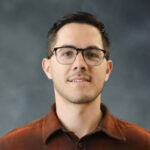
Joshua Hans (he/him) began his career as a mathematics teacher and jumped on the opportunity to begin teaching programming and robotics in 2016 with the assistance of the Microsoft TEALS program.
He helped develop a four-year computer science program that introduces students to computer science and robotics fundamentals, culminating in AP Computer Science classes, which he currently teaches. As a teacher leader in his building, Joshua supports colleagues in their professional development while also facilitating teacher training sessions with NYC CS4ALL to expand computer science education throughout the city.
Joshua believes that computer science, at all levels, is an opportunity for creative expression and that exposure at the middle and high school level is crucial in this day and age. He attributes much of his success to working in a school that rewards risk-taking, being a Math for America Master Teacher, and having a supportive family.
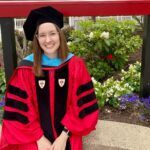
Laura Peters has 15 years of experience in education, including 10 years teaching special education and computer science. She is currently the STEAM and Robotics teacher at Somerville High School in Somerville, MA, where she teaches courses such as Introduction to Java Programming, Robotics, and Hardware Engineering. This year, Laura co-developed and taught a course called AI, Design, and Robotics, which explores how artificial intelligence tools can support creativity and artistry, along with the ethical and social implications of AI. Her primary focus as a teacher is broadening participation in computer science classes and extracurriculars, with a commitment to supporting students from diverse backgrounds in progressing through advanced and AP coursework.
Laura holds a bachelor’s degree from Wheaton College, an M.Ed. from the Harvard Graduate School of Education, and an Ed.D. in Educational Leadership and Policy Studies from Boston University’s Wheelock College. Her dissertation focused on supporting teachers in integrating creative, equitable, and inclusive computer science learning experiences into their classrooms.
Laura is also the lead mentor for Somerville High School’s FIRST Robotics Team 6201, which was recently honored with the Engineering Inspiration and Judges’ Awards for their outreach to younger students. In 2022, she founded the district’s first middle grades Girls Who Code club to encourage more girls to participate in STEAM extracurricular activities. She also serves on her district’s K–12 Digital Literacy and Computer Science strategic planning team, which recently developed a plan to implement DLCS for all middle school students district-wide by 2027. Laura has received several honors, including the Cognizant/TFA Innovations in Computer Science Education Award (2022), the CSTA Excellence in Teaching Award for the New England region (2022 and 2024), and the Massachusetts NCWIT Aspirations in Computing Educator Award (2025).
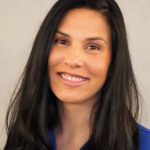
Ms. Barros is currently a Computer Science and Visual Arts teacher at P94M, part of the New York City Department of Education’s District 75, which provides specialized support for students with significant challenges. She has been an educator for over 14 years, working with students with disabilities across a variety of educational settings.
Ms. Barros is passionate about making computer science accessible, engaging, and meaningful for all learners. She teaches coding using ScratchJr and educational robots, and has taught LEGO League, providing students with hands-on opportunities to develop problem-solving and teamwork skills through robotics activities. Recently, she has expanded her expertise to include lessons on artificial intelligence, helping students explore how this technology impacts their lives and communities.
She also incorporates the human-centered design process into her teaching, guiding students as they create digital solutions for real-life problems. As part of the Mouse Design League, Ms. Barros supported her students in developing app prototypes using Figma. She thoughtfully modified Mouse’s curriculum to meet the unique needs of her learners, ensuring they could fully participate and successfully complete their projects.
Ms. Barros is an active participant in CS4All NYC’s Exploring Equity in Computer Science initiative and is a member of both CSTA NYC and CSTA Staten Island. She is deeply committed to ensuring that the students she teaches have meaningful, empowering experiences in computer science—offering them exposure to high-level activities that challenge and inspire their growth.
In recognition of her innovative and inclusive approach to teaching, Ms. Barros received an Honorable Mention in the 2024–2025 CS Teaching Excellence Award program, celebrating her outstanding contributions to computer science education.
Follow Ms. Barros on Instagram @nycteacher515

Rashad Davis is the Computer Science Teacher and Director of Technology and Instruction at Gary Comer College Prep, where he leads innovative efforts to integrate technology into classrooms and prepare students for the digital future. With a passion for equity and empowerment through education, he also serves as a board member of the STEAM & Dream Liberation Lab, a nonprofit dedicated to cultivating culturally responsive STEAM education.
Rashad has contributed to the development of computer science curricula designed to make coding and AI more accessible and relevant across the Noble Network of Charter Schools. His work bridges academic excellence, tech integration, and social impact by centering on culturally responsive, real-world applications of technology that inspire creativity, critical thinking, and long-term success.
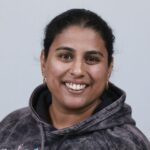
Shilpa Agrawal is a founding teacher of Comp Sci High, a charter school in the South Bronx. She currently serves as the Director of CS, coaching all the CS teachers in the school and overseeing the 4-year course progression. In her past 7 years at the school she has taught various classes including AP CSA, Software Engineering, AP Calculus, Intro to Physics, and AP Physics 1. Prior to teaching, Agrawal earned her Bachelor’s Degree in CS from MIT, and then worked at Google for 3 years as a Product Manager. She is passionate about teaching CS because the subjects allow students to discover through hands-on problem solving. She aims to help build a field of computing that not only accepts people with different backgrounds, but actively encourages them to bring their full selves to the table.
Regional Winners
- CSTA Iowa
- Jason D Landa
- CSTA Miami
- Daniel Jones
- CSTA New Jersey
- Corinne Blaine
- George John Merrill
- Joanna Papadopoulos Myhrvold
- CSTA South Carolina
- Raymond Anacaya
- Four Corners
- Jacob Lott
- Illinois/Chicago
- Matt Carter
- Melanie Hess
- Patricia Kallianis
- New England
- Cynthia M Dehm
- Latasha Sheffield
- Neil Adam Plotnick
- New York
- Darren R. Ehrhardt
- Kuri DiFede
- Shira Moskovitz
National Winners
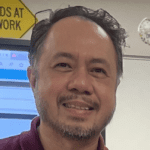
Abraham Delos Reyes (he/him) brings over two decades of dedication to teaching Computer Science and STEM subjects across Elementary to High School levels. His passion for education has led him to share his expertise across continents, including the Philippines, Taiwan, Singapore, China, Switzerland, as well as various cities and states in the U.S., such as Baton Rouge, Louisiana, and Tucson, Arizona.
Beyond teaching, Abraham is a committed mentor, guiding various school organizations and clubs like the robotics club, basketball and chess teams. His robotics club has excelled in regional and national competitions like the FLL, MATE ROV, and SeaPerch ROV underwater robotics competitions.
Abraham’s commitment to fostering innovation shines through his guidance, producing four winning apps in the Congressional App Challenge. Developed in his classes, these apps earned acclaim from offices like Congressman Graves of Louisiana’s 6th district and Congressmen Ciscomani and Grijalva of Arizona’s 6th and 7th districts. His initiative in certifying Sonoran Science Academy-East as a CS100 School reflects his dedication to advancing CS education, making SSA-East Tucson’s sole CSisElementary school.
Abraham’s mentorship has impacted students like Mackenzie L. and Alyssa Carson, who achieved recognition in STEM. Mackenzie was honored as a Louisiana Region Affiliate Winner of the NCWIT Award for Aspirations in Computing, while Alyssa pursued space exploration, inspiring aspiring girls in STEM.
Recognized for his commitment, Abraham received the 2024 Southern Arizona Research, Science, and Engineering Fair (SARSEF) Educator Award and was previously named the 2020-2021 Teacher of the Year at the Baton Rouge International School. Looking ahead, he aims to enhance curriculum development, encourage student participation in CS events, support educator training, empower student success, and foster inclusive excellence in CS education.
Abraham Delos Reyes exemplifies excellence in CS education, leaving a lasting impact on students’ lives and shaping future STEM leaders globally.
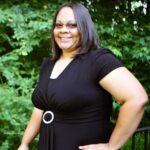
Amber C. Williamson, the sole High School Cybersecurity Teacher in her school district, a member of the CSTA Computer Science Honor Society, and a Microsoft TEALS Advisor at the Atlanta College and Career Academy in Atlanta, Georgia, is a true pioneer in her field. Her role as the only cybersecurity instructor underscores her commitment to championing diversity, equity, and inclusion for all computer science and cybersecurity students. Her achievements include guiding students to obtain the CompTIA Security+ certification, participating in Artificial Intelligence and Machine Learning courses, The Coding School and Changing Expectations, and continuing their education in cybersecurity. Her dedication to her student’s success is evident in the recognition her girls have received with NCWIT Aspirations in Computing. Valedictorians and Salutatorians have matriculated from her program, further highlighting the impact of her teaching. Amber’s mission is to ensure that more minorities receive formal computer science and cybersecurity education, thereby increasing diversity in the field.
Amber’s transition from the industry to the classroom urged a calling to help others struggling to obtain cybersecurity jobs and certifications. From participating with Microsoft TEALS to a simple conversation with a late friend who was a computer science major at Xavier University of Louisiana, Amber made the switch and followed her calling to help minorities in computing. Throughout her time, Amber ensured that the Game Design Students obtained laptops to further their education in programming. Students participated in the former CyberStart America Cybersecurity competition, scoring above 20,000 points in participating in the SANS certification program. Students participated in a Career Development event with Cyversity and Information Technology Senior Management Forum to prepare them for mock interviews and job readiness in their respective careers. A few community service projects her students have participated in are educating Teaching as a Pathway and Infant Toddler Care pathway students in the safety of student data, educating staff on the importance of cybersecurity, and collecting dental hygiene items for a homeless ministry for a local church in the Metropolitan Atlanta area.
Amber has a Double Bachelor’s in Biology and Technical Management and a quadruple Master’s in Information Systems Management, Network Communications Management, Computer Science Education, and Cybersecurity. She also has a Workforce Education and Cybersecurity for Educators Graduate Certificate. Amber is completing her doctoral degree in Cybersecurity, focusing on Cybersecurity Education. She is a member of the CSTA Georgia Chapter, a Black Affinity Group founding member, and several committees in CSTA, a former Policy Member, an Editorial Board Member, and various conference committee members. In addition to CSTA, Amber has served as a committee member at the NICE K12 Cybersecurity Education Conference and a mentor at CSEveryone, Black Girls Hack. She is a two-time recipient of the NCWIT Aspirations in Computing award. Amber credits the University of Maryland Baltimore County Computer Science Education (MAE), University of Georgia Workforce Education, Marymount University Cybersecurity Program, and CSTA as viable educational programs to support cybersecurity and computer science education.

Bhawna is a Computer Science Engineer and dedicated educator emerging from a lineage of engineers and teachers. As a woman of color in technology, she is passionate about inspiring underrepresented groups in STEAM. With five years of experience as a senior software engineer, Bhawna transitioned into education in 2018 to foster inclusivity and encourage students to pursue careers in technology with confidence and resilience.
Currently, Bhawna is the Computer Science Lead Teacher at the Center for Research in Engineering, Science, and Technology (CREST), where she teaches high school Programming, Computer Hardware, and Network Security. She teaches Dual Enrollment and Advanced Placement courses, with her students consistently achieving high AP scores, including a perfect APCSA exam score in 2023. Bhawna has curated a comprehensive Network Security pathway for her district’s CTE program. She champions project-based learning to promote critical thinking, collaboration, creativity, and communication.
Beyond the classroom, Bhawna enhances student engagement through clubs like the CS Honor Society, SkillsUSA, Girls Who Code, and the South Asian Culture Club. As Lead Advisor for SkillsUSA’s software development and network security programs, she mentors students to excel in competitions. Her district-level contributions include serving on committees including the STEAM initiative, CTE Design Team, Data Governance and Cybersecurity and Task Force, and the Superintendent Faculty Advisory Council. Bhawna’s commitment to professional development includes earning her SCRUM-Master certification and joining the 2024 Amazon Future Engineer Teacher Ambassadors cohort. She continually expands her skills to better serve her students.
Active in professional organizations, Bhawna is proud to be a part of the CSTA Arizona chapter(2019-present) and serves as the Arizona affiliate coordinator for the National Council for Women In Technology Aspirations in Computing. She believes in the Butterfly Effect of relentless effort and emphasizes addressing workplace discrimination and advocating for peers.
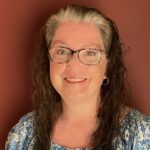
Diane Kahle, Ph.D. (she/her) is a computer science teacher at Upper Arlington High School located in a suburb of Columbus, Ohio, where she was Teacher of the Year for 2022-23.
In her 34th year of teaching, Diane has taught middle and high school math and computer science. When she began teaching solely computer science ten years ago, she realized the importance of computer science education for all students and became passionate about bringing as many computer science opportunities for all students K-12 to her school district.
Since then, Diane has added five additional computer science courses to the curriculum and a student tech help desk which supports her 1-1 school every period of the school day. She leads the Computer Science Club which focuses on learning more CS, volunteer work aimed at promoting CS education, and coding competitions. Diane brought Code.org’s Hour of Code program to the schools and last year her high school students visited every elementary and middle school classroom in the district to lead Hour of Code activities. She leads the district K-12 computer science curriculum committee and along with her CSTA CS Honor Society leads Saturday workshops in January for Girl Scouts to learn about robotics and coding. Diane brought opportunities to earn two industry credentials including Oracle Java Foundations and CompTia IT Fundamentals +. She also coordinates an e-waste drive and an annual day of unplugging.
The biggest event of the year is a Hackathon which Diane organizes with corporate sponsor, Nationwide, that offers activities to learn to use Raspberry Pis and electronics to code a game, compete in a coding contest or a cyber CTF, or explore AI tools while discussing appropriate use.
Diane is most proud of building a computer science education program for her school district that provides so many different opportunities for students.

Donna Schmitt, a Technology Coach and Computer Science Teacher at George Washington Carver Elementary School in Dubuque, Iowa, is a trailblazer in bringing computer science education to elementary school students at Carver. Seventeen years ago, she took the initiative to incorporate the computer science concepts she was teaching at the high school level into the elementary school curriculum through the innovative use of Scratch programming. Since then, she has remained committed to offering enriching computer science experiences for ALL students.
Donna is noted for establishing a STEAM lab, where students actively engage in hands-on learning and apply their computer science skills through the engineering design process. By emphasizing collaboration, critical thinking, creativity, and communication skills, she fosters a dynamic and engaging learning environment for her students, an achievement that has led to her being recently honored as an Iowa STEM Teacher Award Recipient.
Donna enjoys integrating computer science education using a variety of tools such as LEGO Education Spike and WeDo kits, Micro: bits, and Dash, Indi, and Beebot robots. She finds that building and using robots are motivational ways to get students to apply CS concepts in authentic problem-solving scenarios. Beyond the school walls, she loves to coach FIRST Lego League and Wonder League robotics teams. Donna’s students have excelled in these competitions achieving accolades at regional, state, national, and international levels. She is excited to witness a growing number of female and underrepresented students participating in her after-school programs, paving the way for a more inclusive and diverse future in the field of computer science. Donna has made an impact beyond Carver Elementary School, contributing to the expansion of First Lego League teams in her community through partnerships with organizations like John Deere and Rockwell Collins, by promoting the program and training new coaches. She works closely with the Director of Digital Literacy and her colleagues in the Dubuque Community School District to bring computer science to all local schools.
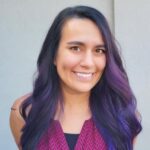
Jessa Campbell (she/her) is a Learning Technology Integrator at Albemarle County Public Schools in Charlottesville, Virginia. With over eight years of teaching experience, including three focused on computer science integration, Jessa is dedicated to educating our youth.
As an advocate for media life balance, Jessa volunteers with organizations such as CodeVA, CSTA, Girls’ Geek Day, and Cat Action Team. She also coaches high school soccer and tutors in her community.
Jessa has received the 2024 Virginia Computer Science Administrator/Counselor Champion award for her work beyond the classroom. This award recognizes her role as Program Director for ACPS Coding Camp, a free summer program for elementary students. This year, the program expanded to include middle school students, aiming to engage underrepresented populations in computer science. She also leads her district’s Digital Citizenship Committee, achieving districtwide certification through Common Sense Media. She is a Common Sense Media Ambassador and recently earned her computer science teaching endorsement. Jessa frequently presents at conferences such as VAST, VSTE, Full STEAM Ahead, and the CS Institute, sharing insights and innovations on various computer science topics.
Currently, Jessa collaborates with colleagues on projects that aim to provide accessible and equitable learning opportunities in computer science. Her mission is to uplift all learners through interdisciplinary learning and engagement. She believes that students are our future and works hard to ensure they have the skills and knowledge to thrive in a rapidly evolving world. Driven by a passion for empowering students through digital learning opportunities, Jessa continues to inspire and lead, making a lasting impact on her community.
Connect on X (formerly Twitter) or Instagram: @jcampbellteach
Connect on LinkedIn
Edited with ChatGPT

Ji Jacob Jun (he/him) is a former high school dropout who somehow found his way back into education when he started part-time teaching in 2015. By day, he taught CTE Broadcast and Media courses. By night, he worked as a freelance photographer and videographer. Since then, he’s moved to full-time computer science instruction at Rancho San Juan High School in Salinas, California, for Mission Trails ROP. He currently teaches a Python course, AP Principles, and Cybersecurity. He also serves as an EdTech Coach and is a member of the district’s AI and Tech Planning committees.
In 2020, he was the recipient of the Amazon Future Engineer Teacher of the Year award for his efforts in creating opportunities for his students. Jacob’s superpower is connecting his students to industry with guest speakers and work-based learning opportunities. His school’s STEM House was the largest group to ever visit the Meta campus.
Jacob loves seeing his students succeed and achieve. His Esports team took third at the HSEL Nationals in 2022, and his teams have medalled in MateROV, MESA, and SkillsUSA regional and state competitions. His students have received the Gates Scholarship, AFE Scholarship and Internship awards, and other incredible accolades. They are superheroes!
For his efforts in increasing access to CS education, he was awarded the Monterey Bay CUE Affiliate Technology Innovator of the Year award in 2023. As an AFE Ambassador, Jacob spent the past year researching and presenting solutions to recruit more in-service teachers for CS courses.
He is very proud of his PLC, which created and held the district’s first Hackletics competition, and he is also glad to be a part of the Esports and EdTech coaches’ efforts to create the district’s first intramural Esports tournament and increase participation at all sites.
Twitter: @JacobTeachesCS
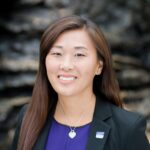
Kimberly Hermans teaches high school computer science at Troy High School in Fullerton, CA. She has 18 years of experience teaching high school students and has 7 years of experience lecturing computer science at California State University, Fullerton, and the University of California, Irvine. Kimberly has taught AP Computer Science A for 14 years and AP Computer Science Principles since the pilot program’s inception in 2013.
Kimberly holds both a B.S. and an M.S. in Computer Science, along with a National Board Certification in Career and Technical Education (CTE). A former Albert Einstein Distinguished Educator Fellow and Ocean Exploration Trust Science Communication Fellow, Kimberly’s commitment to education led her to design and implement a four-year computer science pathway at Woodbridge High School.
In addition to her teaching roles, Kimberly mentors preservice teachers pursuing computer science credentials in California, serves as a College Board consultant and mentor, and participates as an AP reader. She is deeply involved in initiatives to broaden participation in computing, inspired by her own experience as one of only two girls in her high school programming class. Her efforts have been supported by her tenure as an Albert Einstein Distinguished Educator Fellow at the National Science Foundation and her current role as the Community College Working Group facilitator for Expanding Computer Science Education Pathways (ECEP).
Kimberly also chairs the Equity Committee for her local teacher union, serves on the AAPI Steering Committee for the Computer Science Teachers Association (CSTA), and is beginning her first term on the CSTA Board of Directors. Her dedication to equity and inclusion in computer science education continues to drive her professional endeavors.

Pradip C. Misra teaches Science and Computer Science in a rural town in Arizona. He has dedicated over two decades to teaching Computer Science and STEM in highly diverse communities. Pradip has a Master of Science Degree in Physics and currently is pursuing his Doctorate in Educational Leadership and Management. He loves Yoga, traveling, and Teaching. Armed with a Master of Science Degree in Physics, his journey into Computer Science began while teaching Physics. Recognizing the immense power of Computer Science, Pradip strived to leverage its potential to empower students and communities. Through Computer Science, he has opened new doors for female, low-income, English Language Learners, and migrant students. His unwavering goal has been to revolutionize learning using Computer Science to address various learning disabilities across all subjects. Combining Computer Science with Drones, Robots, Sensors, Agriculture, Auto and Data Science has helped him include more students in Computer Science. A passionate advocate for Computer Science, Pradip has successfully made it accessible to all students, particularly in rural areas. His relentless efforts have focused on increasing access to Computer Science, and he has spearheaded programs that integrate it into all subjects, ensuring universal accessibility for his students. His Computer Science programs are designed with inclusivity in mind, addressing gender, cultural, and socioeconomic identities within his communities. Creating an inclusive space for everyone in Computer Science is not just a goal, but a commitment Pradip will continue to champion.
Pronouns: Him/his/He
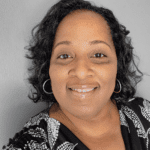
Wanda Jones (she/her) is currently a computer science teacher at Nova Middle School and an adjunct computer science professor at Broward College which are both located in Davie, Florida. With 25 years of secondary and undergraduate teaching experience, Wanda brings a wealth of experience to her role as an educator, which incorporates her unique background in computer science, education technology, and computer information system management. She thrives in her role of facilitating curriculum and instruction of computer science skills and standards for her students’ successful academic pursuits. Her teaching philosophy centers on empowering every student to excel in computer science by employing innovative pedagogy where computer science education is integrated with real-world experiences, further preparing students for the global workforce.
Wanda’s teaching career has been marked by achieving several endorsements, certifications, and milestones such as being named one of the 2022-2023 cohort of the Amazon Future Engineer Teachers of the Year. In addition to her teaching responsibilities, she holds leadership roles and empowers others as a Department Chair, Microsoft Innovative Educator Trainer, and as a Certified Minecraft Educator. Wanda’s passion for education extends beyond the classroom as she also serves as the Esports Coach at Nova, nurturing students’ interests and talents beyond traditional academics. Her warm and welcoming demeanor, coupled with her expertise, makes her a beloved mentor and educator.
Beyond her professional achievements, Wanda is a self-proclaimed nerd, finding joy in all things Star Wars, Star Trek, Lego, and Sci-Fi in general. She loves music, traveling, and cherishes spending time with her family and friends.
Honorable Mentions
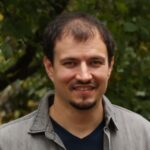
Jeffrey Wile is a computer science teacher at Warwick High School in Lancaster, PA. Wile is also a founder and chapter president of CSTA Susquehanna Valley, the advisor for the Warwick Computer Science Honor Society, a member of PA’s ECEP Alliance team, a CS Praxis tutor, a guest lecturer for a CS graduate course, and presenter at state-wide conferences. Since being hired to teach computer science in 2013, Wile has been working to build an “array” of courses that provide both “breadth and depth” of learning opportunities for all students in the building. Wile’s focus is on developing courses that allow students to learn at their own pace and have opportunities to explore how computer science integrates into other topics. Wile is a proud husband and father of two and hopes to see computer science skills being developed for all students like it was an open-source project—collaborative, accessible, and innovative.

Jessie Nunes is a history teacher at North High School in Des Moines, Iowa, who expanded her expertise to include computer science and coding to ensure her students have access to these vital skills. She established and runs the 3D Modeling Club and sponsors the NASA App Development Challenge team, leading them to national recognition as finalists. Jessie actively recruits students from underrepresented backgrounds into AP Computer Science Principles, fostering diversity and access to STEM education.
Jessie works tirelessly to bring opportunities to her students, making it possible for them to speak on a national stage to address STEM education for minority students. She also provides free workshops during the summer for students to learn 3D modeling. As a migrant who has lived and worked all over the U.S., from inner city charter schools of New Orleans to remote rural regions of Alaska, Jessie brings diverse experiences to her teaching.
In addition to teaching, Jessie is a 3D content creator and a member of her school’s teacher leadership team and district facility planning committee for programming. She is committed to expanding her programs, and ensuring all students have the opportunity to explore and succeed in computer science.

John Chapin is currently the computer science pathway leader at the Academies of Loudoun, where eight years ago he led the creation of a comprehensive four-year curriculum, including courses in machine learning and mobile application development. John is committed to three things: integrating CS, underserved populations, and teacher CS development.
John received the NCWIT Aspiration in Computing Educator Honorable Mention Award for his dedication to bringing computer science to underserved populations through various initiatives, such as summer camps and high school ambassador programs. Under his leadership, the Computer Science Honor Society has grown to 150 members, focusing on outreach and support for younger students. These student ambassadors organize significant events, including a hackathon involving 275 students, the Hour of Code reaching 450 K-8 underrepresented students, and a VEX Robotics tournament with 300 middle school participants. Additionally, John has created and teaches a data science summer camp math course for underserved 8th graders.
For the past three years, John has supported Virginia teachers by leading professional development classes in Java and Python through CodeVA. As the founder and former president of the CSTA Northern Virginia chapter, he grew its membership to over 100. He currently serves as the treasurer of CSTA Virginia.
John has contributed to curriculum development by creating integrated STEM lessons for the VA Space Grant Consortium in collaboration with NASA, which have been incorporated into Code.org’s curriculum. Furthermore, he was one of four secondary-level working group members developing AI guidelines as part of the NSF-funded AI4K12.org grant. John has presented his published research on whiteboarding and self-efficacy at the ACM’s SIGCSE CompEd Global Conference in Hyderabad, India.
John holds a Bachelor’s degree in Mathematics from Georgetown University, an MBA from the University of Virginia, and a Ph.D. in Curriculum and Instruction in Integrative STEM from Virginia Tech.

Jose L. Silva-Smith, an esteemed CTE Business Education & Computer Science Professional Educator at Tornillo High School, boasts over a quarter-century of unwavering dedication. A Tornillo native since his family’s migration from Mexico, Jose’s profound commitment to education fuels his mission. His visionary leadership birthed a district-wide Computer Science Program, enriched by collaborations with WeTeach_CS, UTeach CS, and Code.org.
Under his guidance, Tornillo High School ascended to an Amazon Future Engineer High School, amplifying student prospects. With proactive grant endeavors, he ensures equitable access to advanced CS curriculum. Jose’s influence extends through active participation in regional chapters, fostering vital connections within the CS community.
Honored with the WeTeach_CS Change Maker Teacher Award in 2023, Jose exemplifies innovation and advocacy in education. His engagement in transformative projects like CSforELs and the UTEP CREED Research Experience for Teachers (RET) Summer Institute underscores his commitment to inclusive, pioneering pedagogy, enriching lives in Tornillo and beyond.
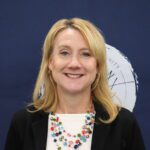
Katy Ullrich is a computer science teacher and STEM/CTE Department Chair at Liberty Magnet High School in Baton Rouge, Louisiana. She is also the school’s sponsor of the Girls Who Code club and the Computer Science Honor Society. She has taught a variety of technology classes at the high school level including AP Computer Science A, AP Computer Science Principles, Interactive Computing, Intro to Computational Thinking, Programming for Engineers and Web Design. She also coached a middle school robotics team for many years.
In 2023, Ullrich was named the Liberty Magnet High School Teacher of the Year. She’s made great strides to recruit more females into computer science and received the AP Computer Science Female Diversity Award by College Board in 2021 and 2023. She also earned the NCWIT (National Center for Women & Information Technology) Louisiana Education Award in 2020 and several of her students have earned the NCWIT Aspiring Student Award. Ullrich is active in both local and national organizations to promote computer science education. With fellow computer science teachers, Ullrich started the Louisiana Chapter of the Computer Science Teachers Association and was President of the organization for many years.
Ullrich has worked tirelessly to increase access to computer science education for students from underrepresented backgrounds through interdisciplinary programming and by incorporating outreach programs to local communities and schools.
Regional Winners
- CSTA Illinois
- April Schermann
- Keith Dumbleton
- Madeline Gerena Franco
- CSTA New England
- Jonathan Graffius
- Kismet Cherie Fair
- Laura Peters
- CSTA New Jersey
- Emily Grantham
- Rebekah Collipp
- Roshell Gordon
- Four Corners
- Harry Knight
- Julie Morales
- Katherine Anne McDonnell
National Winners
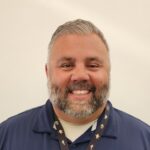
Matt Alonzo (he/him) has positively influenced students’ lives for over two decades. With a solid foundation in mathematics from the University of Missouri St. Louis, Matt discovered his passion for teaching computer science over ten years ago, prompted by a colleague’s recommendation.
Recognizing the limited access to CS courses and the untapped potential of his math students, Matt took it upon himself to address this disparity. With unwavering enthusiasm, he went above and beyond to bring computer science to his students. Guided by the principle “if they won’t come to me, then I will go to them,” Matt single-handedly expanded the reach of CS education at his school.
A notable achievement of Matt’s is the creation of a CS mini conference prior to Thanksgiving break. During these sessions, students in all math classes engaged in CS activities. This initiative proved highly successful, leading to the growth of the program to eight sections with over 150 students. Today, the CS mini conference is organized by the Computer Science Honor Society, a group Matt proudly sponsors.
Beyond his classroom, Matt serves as a facilitator for code.org, supporting their curriculum in CSA and CSP. He actively contributes to the CSA advisory council, shaping the future of computer science education. Matt’s commitment extends further as he serves on the school board in his local district, showcasing his dedication to student success.
An integral aspect of Matt’s teaching philosophy is creating opportunities for underrepresented groups to access computer science education. He fosters an inclusive environment, inspiring
diverse students to pursue computer science.
Matt’s impact transcends the classroom as he shapes the future of computer science education. Through his unwavering commitment, Matt makes a lasting difference in students’ lives by equipping them with valuable skills and empowering them to thrive in the digital age.
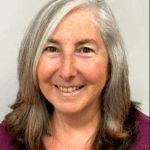
Paige Besthoff (she/her) is a computer science teacher at E. Raymond Appleby School in Spotswood, New Jersey. Paige has been teaching computers for 24 years beginning in a NYC middle school then NJ high school. Realizing the need for students to be exposed to CS at a younger age she volunteered to move to the elementary school eight years ago where she designed the K-5 curriculum based on the CSTA standards.
Students as young as eight are exposed to CoffeeScript and Python as well as block based coding. Students use Dash, Ozobots, Beebots, Sphero indi, littleBits and micro:bits to gain knowledge of physical computing. Students stare at screens all day so when they get to Paige’s class she wants them to be able to use their hands and minds to create technology, not just consume premade content.
Besides focusing on creating, it is important that all students have access and the ability to succeed. Every student gets what they need to achieve success. When you walk into her room, you see students working on different platforms creating different projects. One student may be working on block coding with arrows, another block based text blocks and another coding micro:bits in Python.
Paige hosts Family Code and Robotics nights and is STEAM Camp Director. Paige is also active at state and national levels. She is the CSTANJ Chapter Secretary, Co-chair CSTANJ CSPD Week, CSTA K-5 Conference Subcommittee member, presenter for CS is Elementary, CSTA and ISTE, Code.org CS Fundamentals facilitator, workshop presenter for TCNJ CS Education Hub, Rutgers University and Kean University CS Hubs, Elementari ambassador, Sphero Hero, Tynker Distinguished Educator, administers a K-8 Facebook group, and mentors teachers interested in CS.
Connect with Paige @pcteachershs and LinkedIn
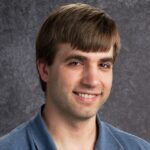
Jason Galbraith (he/him/his) started his career with an M.S. in artificial intelligence (after a computer science undergraduate degree with minors in physics, mathematics, and art history), but then realized he enjoyed teaching more than working on research. After getting his high school teaching license in advanced mathematics and physics, he landed a job teaching computer science for a Career Technical Education (CTE) pathway at Sunset High School in Beaverton, Oregon, where he has been since 2007. He has taught a huge variety of technology classes for all levels of students, from computer introductions for middle school students to college-level computer science classes. At Sunset, his classes include 3D modeling, video game creation, web design, robotics, Java programming, C++ programming, data structures, discrete mathematics, cybersecurity, and artificial intelligence. Using project-based and flipped classes, he teaches all of these classes in the same room at the same time, with class sizes of up to sixty students. In 2015, he received a grant to create a mechanical and electrical engineering program to allow for physical problem-solving to go with the digital problem-solving, and Sunset now offers over twenty different high school classes between the two career pathways.
Jason has won numerous awards including the 2014 National Center for Women & Information Technology (NCWIT) Educator Award for Oregon, 2019 Presidential Award for Excellence in Mathematics and Science Teaching (PAMEST), and 2022 TechStart Technology Educator of the Year.
Outside of school, Jason coaches video game teams, mentors robotics teams, and runs multiple after-school clubs. During the summer, he runs girls-only technology camps and high school software engineering workshops, as well as running teacher workshops through the Oregon Computer Science Teachers Association (OCSTA). Recently he has served on multiple Oregon Department of Education committees to advance computer science initiatives in education.
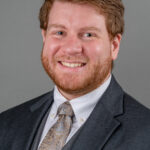
Keethan Kleiner (he/him) returned to teach at his high school alma mater, the North Carolina School of Science and Mathematics (NCSSM), in 2016. He earned his B.S. and M.S. in computer science from UNC-Chapel Hill, specializing in artificial intelligence. Before teaching computer science at NCSSM, Keethan worked as a software engineer in natural language processing.
Since entering education, Keethan has completed the STEM Educators for Equity & Diversity Fellowship, Cultural Competency in Computing Fellowship, Education Policy Fellowship Program, and Socially-Relevant Computing & Analytics Research Experience for Teachers. Keethan is also the recipient of the 2022 and 2023 National Center for Women & Information Technology Aspirations in Computing Educator Regional Awards and the 2021 Regional Honorable Mention.
Teaching courses at all skill levels, Keethan has worked to increase access to computer science education for students from underrepresented backgrounds via interdisciplinary programming and by incorporating culturally-responsive and socially-relevant curricula. Keethan expanded the computer science program with the creation of multiple interdisciplinary introductory programming courses in Art, Mathematics, Physics, and Robotics. He also created a course for the distance education program, machine learning and computer engineering courses, a computer science research experience, and summer introductory programming courses. Outside of the classroom, Keethan also sponsored many clubs, competitions, and student-led courses and supported the artificial intelligence program as the AI Facilitator.
In addition to his work in the computer science program, Keethan has been active in school leadership and the leadership of the UNC System, working to increase equity, diversity, and inclusion at all levels. He has presented on the computer science program, interdisciplinary programming, and school governance at the National Consortium of Secondary STEM Schools Professional Conference.
Keethan is passionate about ensuring access to high-quality computer science education and interdisciplinary programming courses so every student can develop an appreciation for computing.
Twitter: @keethankleiner
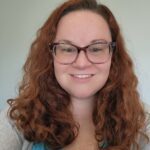
Chantell Mason-Tubbs is a middle school computer science teacher in the Webster Groves School District in St. Louis, Missouri. She has taught for over 15 years in the elementary and middle school grades. She is the coach of the Esports team in her building, and they are currently regional winners in the Missouri Scholastic Esports Federation league. Chantell teaches web development, programming with Python and JavaScript, and game design computer science classes using an open source curriculum that she has written for each course.
Her students regularly present with her at local Raspberry Pi Jams showcasing their Raspberry Pi and Micro:bit projects and her students were featured in a RedHat documentary, Farming for the Future, showcasing their computer science aquaponics projects. She is an ISTE Making IT Happen award winner, a PBS Digital Innovator All-Start, a 2018 METC Spotlight Educator and a Raspberry Pi Certified Educator. Chantell presents at local, regional, and national conferences about topics related to technology, computer science, Problem Based Learning, and STEAM. She has led coding camps and works on various projects supporting our earliest learners with her local PBS affiliate, Nine Network, and has written a computer science curriculum for the K-12 Initiative at Cornell Tech. She is a science and computer science coach with the National Math and Science Initiative (NMSI). Currently, Chantell supports and trains teachers in a joint project with NMSI and Deloitte’s Smart Factory Believers Program. She is driven to empower all learners through computer science with accessible and equitable curriculum and real-world experiences.
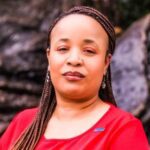
Carla Neely is a math, science, and computer science teacher at Northwest School of the Arts in Cleveland, OH. Carla believes that computer science enhances instruction. Therefore, it should be integrated into the curriculum and not taught in isolation. Furthermore, she believes that computer science should be introduced at the elementary and middle school grades, which serves as the foundation for high school learning. Her entire 24-year career has been with underrepresented students in urban school districts, particularly African American girls. Carla enjoys showing African American girls that not only has there been and continues to be girls and women who look like them in computer science, but there is room for them as well. Because the girls in her classroom were tired of using activities from other programs and clubs, they created their own club with original coding activities, and thus, in 2022 Fros and Codes was born.
Carla has an M.A. in Curriculum & Technology and is a member of the CSTA Equity Fellow Alumni. She is the recording secretary of CSTA Ohio. In addition, she is the chair of the CSTA’s Editorial Board and the co-chair of the Policy Committee. Since 2021, Carla has been a micro:bit champion. She is also an Albert Einstein Distinguished Educator Fellow working in the office of Senator Jacky Rosen. Through this honorable opportunity, Carla helped to introduce The Women of Color in Tech Resolution, designating March 24 as the day in which we honor all the contributions women of color have made in technology fields. Recently, she was appointed as a member of the NCWIT K-12 Alliance Advisory Team.
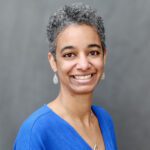
Michelle Pierce (she/her) is the Middle School Computer Science Teacher at Mallard Creek STEM Academy in Charlotte, NC where she was recently chosen as the 2022-2023 Middle School Teacher of the Year. She also teaches Digital Citizenship lessons to every K-8 student to help them develop critical 21st-century skills and understand their personal responsibility while using technology. Michelle leads an afterschool Girls Who Code Club in support of their mission to help close the gender gap in tech. She also serves as a Team Lead and Teacher Mentor.
Michelle is intentional about building relationships with her students so that she can show them all that Computer Science has to offer. She is passionate about using her voice to advocate for diversity and equity in Computer Science. In the classroom, she works to present Computer Science in relatable, yet fun ways while using diverse course materials so that students can see themselves represented. In April, Michelle hosted a school-wide Hackathon event where over 100 families participated in hands-on activities to learn more about different areas of Computer Science.
In 2021, Michelle was 1 of 10 Educators recognized as an Amazon Future Engineer Teacher of the Year for her work in helping students in underserved and underrepresented communities discover all the possibilities Computer Science brings for the future. As a result of her award, she was chosen to represent the Amazon Future Engineer program at the 2022 CSTA National Conference, where she also had the privilege of introducing one of the keynote speakers.
Michelle holds certifications as a Common Sense Educator and Google Certified Educator Level 2. She is an active member of the NC CSTA chapter, CSTA Black Affinity Group, and ISTE. She is also a founding member of the Charlotte Women in Tech for Good.

Trevor Rabourn currently serves as the STEM teacher, MESA Club (Math, Engineering, and
Science Achievement) Advisor, and Chess Club sponsor at Ruidoso Middle School in Ruidoso,
New Mexico. Trevor has served the Ruidoso School district for over 20 years. During his time
with the district he has also taught Journalism, Technology, and Math; coached middle school
football, basketball, track and high school Cross Country; supported teachers as the district’s Technology Integration Specialist; and written and administered Robotics and Computer Science grants for the district.
In 2018 Trevor was tasked with the design and development of a new middle school STEM program and classroom. Support from the district allowed him to create the perfect setting for the MakerLab and STEM classroom he now calls home. In the lab Trevor catalyzes middle school student interest in CS by providing them with an array of robotics, physical computing, and “maker” experiences; giving students multiple entry points and allowing them to see how vital basic CS knowledge will be to their future career goals.
Trevor extends CS beyond the school day by providing enrichment opportunities for students at the school as a MESA advisor. Since assuming the advisor position, club membership has more than doubled with a majority of the growth coming from underrepresented populations in CS. The MESA Club at Ruidoso Middle school placed 1st in the statewide MESA Day competition in 2021, 1st place in the Air Force Research Laboratory’s Robotics Challenge in 2022, and 1st place in the New Mexico Tech MESA Combat Robot competition in 2022. For his efforts with MESA, Trevor was recognized as the MESA Southeast New Mexico Middle School
Advisor of the year for 2020-2021 and 2021-2022.
Trevor begins every semester by sharing how blessed he feels to be teaching a course where the content is constantly evolving and where he must continually learn about new technologies. He hopes his enthusiasm for learning, coupled with the educational experiences within his classroom will help students find joy in learning and will inspire them to pursue their own educational journeys.
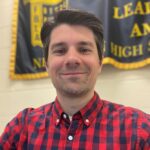
Daniel Sorge is a computer science teacher at New Britain High School where he has worked
for the last three years. Prior to that, Daniel taught computer science at Seymour Middle School for 10 years. His educational background includes a bachelor’s degree in business, a master’s degree in education, and a variety of teaching endorsements.
When Daniel began teaching at New Britain High School, he helped strengthen the computer science pathway. Teaching courses such as mobile app development, principles of IT, and explorations of computer science, he has created a pipeline of students poised to pursue advanced placement course offerings. Daniel is thankful for the incredibly supportive staff and administrative team of New Britain who were instrumental in expanding his professional learning opportunities including the opportunity to become an ISTE-certified educator.
Daniel’s teaching philosophy is founded on the belief that all students can achieve greatness. Through a student-centered, personalized learning environment, Daniel seeks to connect with students so that they can find meaning in their learning. In CS classes, students are challenged to become creators, not just consumers, of technology.
In addition to his students, Daniel is driven by his wonderful wife and two young girls who inspire him every day!
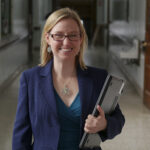
Melissa Zeitz is in her 22nd year as a teacher in the Springfield Public School District. Melissa has developed a specialization in the areas of Special Education, Digital Literacy and Computer Science (DLCS) throughout her extensive teaching career.
Melissa’s work also extends beyond her classroom, working both within and outside of her district. As an active member of ISTE, CSTA, and Masscue, she has delivered training to teachers on how to integrate technology & Computer Science into their curriculum. Within the Springfield School District, Melissa is serving as the technology and resource coordinator for the CSforAll Springfield grant.
Melissa is deeply passionate about instilling a love for creativity through CS and physical computing in her students. She derives immense joy from witnessing the excitement and anticipation of her students when they engage in CS activities. Melissa firmly believes that collaboration, creativity, and problem-solving are the fundamental skills that all students need to develop to succeed in their future college and career endeavors.
She is highly engaged in the technology education community beyond her
classroom. Melissa is currently serving as the President of the CSTA of Western Mass. Her expertise is highly regarded in the field, having served as a Code.org Fundamental Facilitator, Microsoft Innovative Educator Expert, HP Teaching Fellow, and a presenter at various conferences. In addition, Melissa is an Elementary Computer Science Subject Matter expert for CSforMA, and has contributed as the elementary curriculum reviewer on the DLCS curriculum guidebook.
Melissa is an adventurous person who loves to try new things. She enjoys line dancing and west coast swing, and has a passion for traveling and exploring new places around the world. Spending time with her friends and family is important to her, and she values creating new memories with them while trying out new activities.
Honorable Mentions
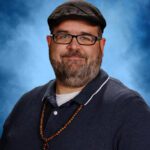
Christopher Evans is a Computer Science teacher at North Forney High School in Forney, Texas. He holds a bachelor’s in Radio and Television Production and a master’s in Educational Technology Leadership, both from Texas A&M University-Commerce. He began teaching technology applications 17 years ago and transitioned to CS eight years ago. During that time he’s started two CS programs. The first was at Arlington Classics Academy, for which he was recognized in 2018 with the WeTeach_CS Change Maker Award. The second is his current program at NFHS where he pioneered the district’s first AP CSA class. Outside the classroom, Christopher coaches UIL CS and CoderZ League Virtual Robotics teams and leads elementary and middle school summer coding camps. Christopher is a devoted husband, dedicated father of four, and just a big nerd. Although he is not THAT Chris Evans, he will answer to Captain America.

Jeremy Joven is a computer science teacher and robotics coach at the Spence School, an all-girls school in New York City. He has taught STEM education in public charter and private schools for more than a decade, including teaching abroad in southern China and Hong Kong. Previous to his work at Spence, Jeremy oversaw the computer science program at the largest charter school network in New York City where he managed teacher training, developed curriculum, and organized hackathon events. He has presented at the National Coalition of Girls’ Schools (NCGS) Educating Girls Symposium and his work has been published in beanz, a magazine that explores coding and programming for kids.
Committed to uplifting underrepresented and underserved populations in computer science, Jeremy has dedicated his career to making CS education more accessible. He believes that students begin to see computer science and coding as powerful tools that can be used to design solutions to our world’s problems and needs, when students are given agency in their learning and empowered to use their voice. Jeremy’s students participate in the American Computer Science League contests and in the FIRST Robotics programs (FIRST LEGO League & FIRST Tech Challenge), where they have won awards at the regional and national level.
Jeremy received a bachelor’s degree in Electrical and Computer Engineering from Duke University and a master’s degree in Childhood Education and Special Education from Touro University.
Twitter: @JJinCSEd

Ascension Reyes is a Technology Resource teacher at De Anza STEM Magnet School in El Centro, CA. He has taught Technology and STEM electives for the past 10 years. In addition Ascension has taught an educational technology course at San Diego State University for the last 6 years.
Ascension integrates Computer Science, STEM and Maker Education into his elective classes, teaching with Arduino, Microbit and Halocode microcontrollers. He also utilizes tools like Minecraft education, Kodu, Tinkered and Scratch to engage students in hands on computer science activities. He has instituted various annual events that promote CS in his district and school site like Girls can Code night and annual Robotics Day events. Also as a consultant, Ascension has worked as a lead trainer with the Imperial County Office of Education on their Kids can Code grant.
Over the years Ascension has been a leader locally and regionally in promoting Computer Science, STEAM and Maker Ed, through his work with CSTA Desert Valley and Imperial Valley CUE. He has developed summer professional development workshops and presented at events like “Beyond the Hour of Code” events as well presenting on the Arduino coding and robotics platform at the annual California STEAM Symposium and Fall and Spring CUE conferences.
In the last two years Ascension has been building a school wide robotics program that has been able to place 12 robots in each classroom 1st through 6th grade. Likewise he has put together a first annual robotics competition within the school district utilizing Makeblock mbot Neo robots. He continues to build capacity at his school site and school district to bring CS to the forefront. The importance of giving each student an opportunity to create with Code and explore with code are the driving force to his passion as a CS educator.

Cindy Wong is an elementary school technology teacher at P.S. 41Q in Bayside, New York. She loves engaging her students in lessons on computational thinking, digital applied skills, and digital citizenship. She believes all students should have early access and exposure to computer science. As an author of a children’s book, “Clara Perseveres” she hopes to encourage children to keep trying and not give up. She was a 2019-2020 CSTA Equity Fellow and is also a Computer Science Lead at her school with CS4ALL NYC, and a Certified Google Trainer and Innovator.
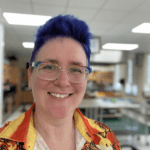
Julie York has been teaching computer science and media electives at South Portland High School in South Portland, Maine since she was hired in 2002. Hired to teach Video Production, she has gone on to develop and maintain many new classes for the school community that include Animation & Game Design, Digital Graphics, Advanced Technology, and Introduction to Computer Science. Community and joy are two main focuses in her life and teaching: with representation, inclusion, involvement, creating, passion, empathy, and diversity at the forefront of her planning and development. She is married with two children and has two businesses she founded and continues to run for fans of anime and gaming in Maine: Weekend Anime & Games and PortConMaine.
Regional Winners
- CSTA Arizona
- Kim Alvin De Lara
- Tyrone James Joe
- CSTA Indiana
- Jennifer Steward
- CSTA Iowa
- Ryan Friederich
- Kyle Kuhlers
- Emily Lewis
- CSTA Miami
- Mark Godinez
- Wanda Latrice Jones
- Daniel T. Jones
- CSTA New England
- Charlie MacFadyen
- Joanna Marcotte
- Priya Rajagopal
- CSTA New Jersey
- Richard J. Bell
- Atiyah Conry
- Maria Filipe
- CSTA South Carolina
- Courtney Dickerson Sheriff
- Lizabeth Nelson Webber
- CSTA Wyoming
- Sara D. Schnell
- Four Corners
- Ann Root
- Ramsey Seweingyawma
- Brian Smith
National Winners
- Nicholas M. Bousquet
- Yolanda Kol
- Adam Lueken
- Melanie Haley Olson
- Khamphet Pease
- Samuel K. Puich
- Agustin Sarmiento
- Devon Senneseth
- Timothy Clifford Swick
- Catherine Tabor
Honorable Mentions
- Tonya Coats
- Taghrid El Meliguy
- Annie Kelly
- Mark Nechanicky
- Adam S. Riazi
Regional Winners
- Minnesota
- Tina Kude
- Whitney Determan
- Josephine Winter
- Arizona
- Jill V. Jones
- Pradip Misra
- Jessie L. McKinley
- Indiana
- Mark Snodgrass
- Amy Fletcher
- Genevieve McLeish-Petty
- Wyoming
- Melissa Price
- Sharon Seaton
- James Cunningham
- South Carolina
- Sarah Tooley
- Denise Wright
- Robin L. Jones
- New England
- Nicole (NJ) Rivilis
- Allison Braley
- Laura Peters
National Winners
- Mary Ann Cassidy
- Kathleen Effner
- Dr. Tamika Grizzle
- Benadette Manning
- Monika Moorman
- Regina Nadbielny
- Kyle Pierre
- Jeremy Schwartz
- Sonia Spindt
- Barbara Teterycz
Honorable Mentions
- Michele Cislo
- Diniah Dean
- Jennifer Manly
- Amy Wright
- Heather Wright
Regional Winners
- Illinois
- Anita Debarlaben
- Adam Lueken
- Daniel Ravury
- Georgia
- Lakeisha Fuller
- Victor Hicks
- Philip Peavy
- Kentucky
- David Lane
- Jonathan Lowe
- Chad Niedert
- New Jersey
- Gary Hull
- Nancy Ricca
- Danielle Vandenberg
- Massachusetts
- Ruth Farmery
- Kara Hass
- Eleanor Richard
National Winners
- Maria Camarena
- Daryl R. Detrick
- Vivienne Forrester
- Mary Heishman
- Visa Thiagarajan
Honorable Mentions
- Elizabeth A. Dierker
- Jennifer Jones
- Carolyn A. Petite
- Brian Downing Smith
- William Warren
National Winners
- Nimmi Arunachalam
- Michelle Cannon
- Elaine Griggs
- Jonathan LoPorto
- Laura Ramirez
Honorable Mentions
- Michelle G. Lee
- Lanna Mack
- Andrea Salas
- Kristie Steinlicht
- Leon Tynes
National Winners
- Sandra Czajka
- Martin Fish
- Bobby Oommen
- Ryan Robidoux
- Dylan Ryder
National Winners
- Eric Allatta
- Jacqueline Corricelli
- Karen Donathan
- Farrah Falco
- Steven Floyd
- Ray Kinne
- William Lau
- Robert Luciano
- Daniel Moix
- Jared O’Leary
